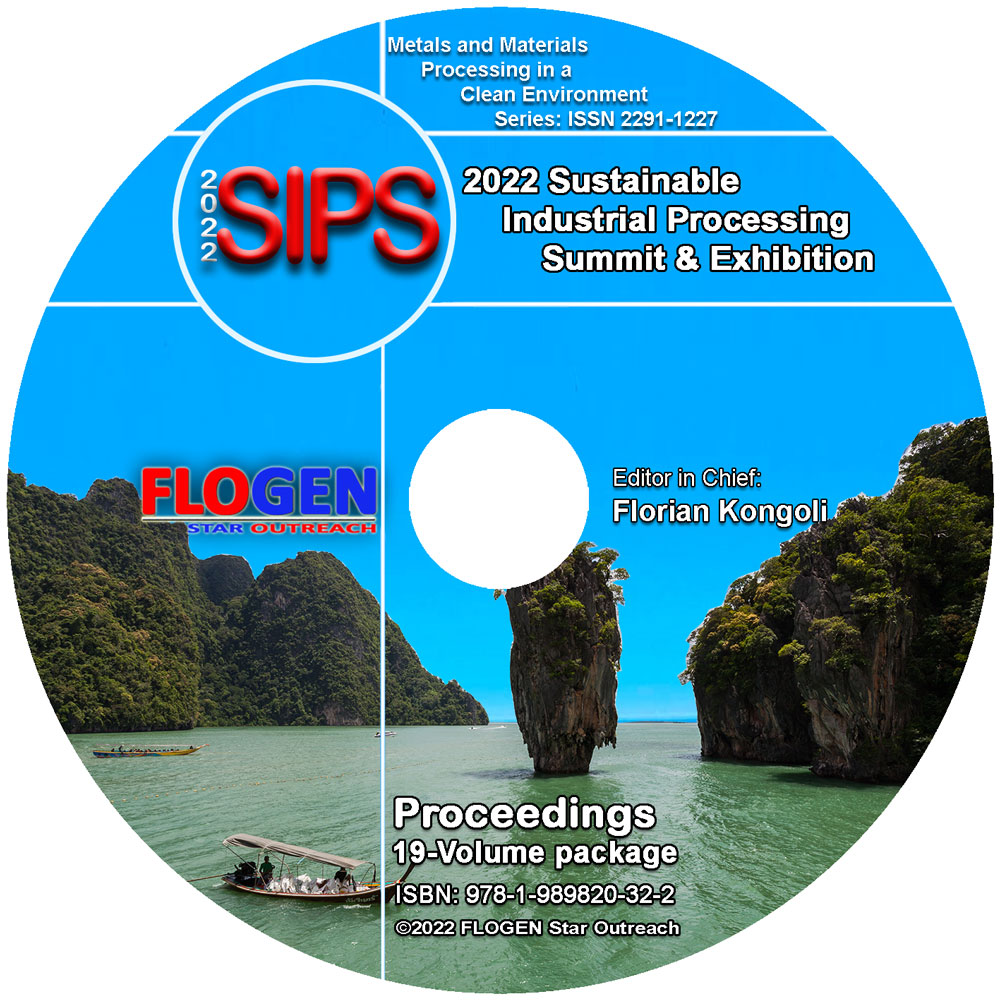2022-Sustainable Industrial Processing Summit
SIPS2022 Volume 15 Yoshikawa Intl. Symp Oxidative Stress of Human Beings
| Editors: | F. Kongoli, H. Inufusa, C. Amatore, H. Chen, W. Huang, H. Goor. |
| Publisher: | Flogen Star OUTREACH |
| Publication date: | 22 December 2022 |
| Pages: | 152 pages |
| ISBN: | 978-1-989820-62-9(CD) |
| ISSN: | 2291-1227 (Metals and Materials Processing in a Clean Environment Series) |

CD shopping page
Role of Antioxidants in Oxidative Stress Induced by High Intake of Alcohol
Fuhua YANG1; Yoshiaki Harakawa1; Toshikazu Yoshikawa2; Haruhiko Inufusa3;1DIVISION OF ANTI-OXIDANT RESEARCH, GIFU UNIVERSITY, Gifu, Japan; 2LOUIS PASTEUR CENTER, Kyoto, Japan; 3TIMA, Gifu, Japan;
Type of Paper: Regular
Id Paper: 429
Topic: 54
Abstract:
Although there are genetic differences in the metabolism of alcohol, large amounts of alcohol intake can cause hangovers and, in severe cases, death due to acute alcohol poisoning. Once alcohol enters the body, it is metabolized mainly in the liver, where it is broken down into the highly hepatotoxic acetaldehyde. It is thought that excessive alcohol intake causes insufficient metabolism in the body, and the acetaldehyde induces oxidative stress, resulting in hangovers and organ damage. Therefore, we examined the effects of large amounts of alcohol on the body using Twendee S (TwS), an antioxidant formula consisting of coenzyme Q10, vitamin C, vitamin B2, niacin, L-cystine, succinic acid, fumaric acid, and L-glutamine.
Mice were intraperitoneally administered ethanol, and blood acetaldehyde and oxidative stress were measured. The results showed that acetaldehyde in the blood increased at 2 hours after ethanol administration and was hardly detectable at 24 hours. However, oxidative stress remained high even after 72 hours of ethanol administration, and antioxidant capacity was low. In contrast, TwS-treated group suppressed blood acetaldehyde and the rising oxidative stress without reducing antioxidant capacity.
In the mouse acute alcohol intoxication experiment, all mice in the Control group, to which nothing was administered, died after 12 hours. However, in the group that received 4 doses of TwS at 12-hour intervals the survival rate was 100%.
These results suggest that heavy alcohol intake increases oxidative stress in the body, and that this oxidative stress may be a factor in acute poisoning deaths. In contrast, the antioxidant compound TwS suppressed acute poisoning deaths by speeding up the metabolism of alcohol and suppressing elevated oxidative stress.
In conclusion, heavy and prolonged alcohol intake causes significant oxidative stress in the body, which may lead to aging and disease. Therefore, countermeasures against oxidative stress caused by alcohol intake are important, and TwS was shown to have the potential to reduce this risk.
Keywords:
Anti-Oxidants; Oxidative Stress; Alcohol, acetaldehydeReferences:
1). Markus Graf V. Matuschka-Greinffenclau, Hans Peter Jander. Alcohol metabolism moderating composition. WO 2005077464 A1. 2005-08-25.2). Markus Graf Matuschka Von Greiffenclau, Haruhiko Inufusa. Composition for accelerating alcohol metabolism and for reducing the risk of alcohol induced diseases. WO 2012095509 A8. 2012-10-04.
3). Petrella C, Carito V Ceccanti M, et al. Oxidative stress inhibition by resveratrol in alcohol-dependent mice. Nutrition. 2020;79-80:110783.